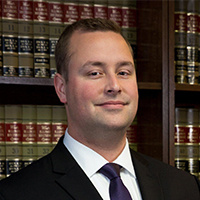Kirkland Bankruptcy & Debt Lawyer, Illinois
Sponsored Law Firm
-
 x
x

Click For More Info:
-
PMJ PLLC
100 S State St Chicago, IL 60603» view mapBankruptcy & Debt Working Relentlessly For You
Patrick is the Founder of PMJ PLLC and has more than 20 years of experience.
800-901-4721
Thomas Laye
✓ VERIFIEDAccident & Injury, Divorce & Family Law, Estate, Bankruptcy & Debt, Business
Thomas was born and raised in Cherry Valley, Illinois. He attended Western Illinois University where he received his Bachelor’s in Law Enforcement a... (more)
Herbert Hoover Franks
✓ VERIFIEDAccident & Injury, Workers' Compensation, Bankruptcy & Debt, Real Estate, Divorce & Family Law
Herb Franks grew up on a dairy farm in Marengo, Illinois. And as a young man working early and long hours milking cows, he knew he wanted more out of ... (more)
FREE CONSULTATION
CONTACTCharles Sewell
Divorce & Family Law, Real Estate, Bankruptcy, Estate, Criminal
Status: In Good Standing Licensed: 51 Years
FREE CONSULTATION
CONTACTRichard Dominic Amato
Bankruptcy, DUI-DWI, Traffic, Personal Injury
Status: In Good Standing Licensed: 21 Years
Richard Amato
Bankruptcy, DUI-DWI, Traffic, Personal Injury
Status: In Good Standing Licensed: 21 Years
Kevin Eric Buick
Criminal, Civil Rights, Business & Trade, Collection
Status: In Good Standing Licensed: 34 Years
Thomas Green
Bankruptcy & Debt, Business, Real Estate, Municipal, Divorce & Family Law
Status: In Good Standing
 Patrick Jones Chicago, IL
Patrick Jones Chicago, IL Practice AreasExpertise
Practice AreasExpertise



